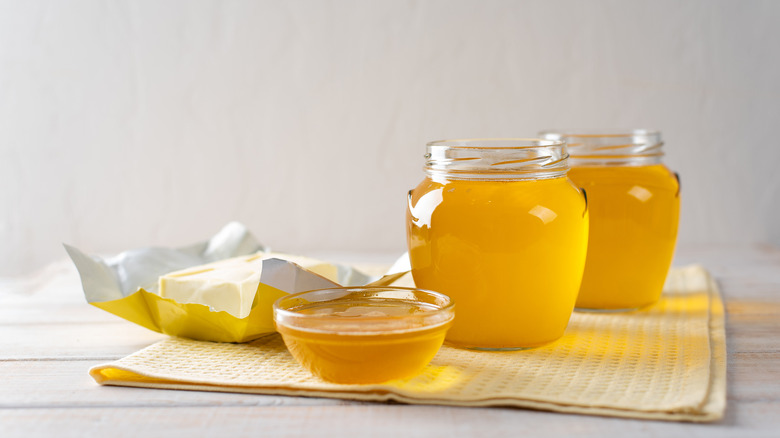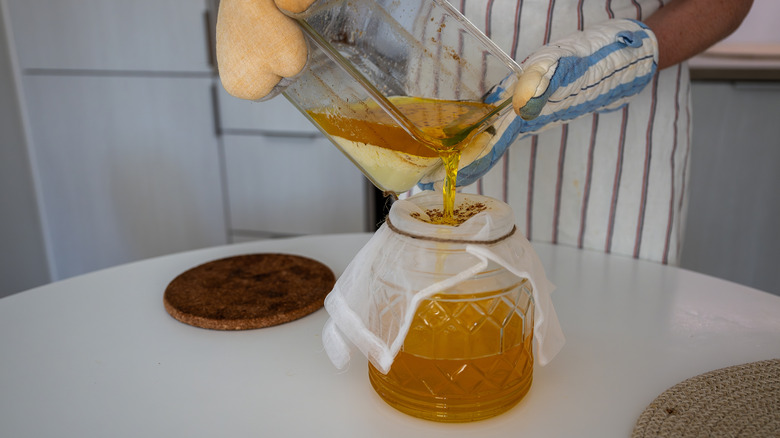Why Ghee Has A Higher Smoke Point Than Butter
Ghee is a type of clarified butter that originated in India. To make ghee, butter is heated until the milk solids separate and brown slightly, before being strained out of the mixture. This process also removes excess water, leaving behind concentrated fat. This high-fat content allows the final product to be stored without spoiling in India's warm climate, which is one reason why it's so popular in Indian cooking. But removing the milk solids also adds a new property to clarified butter: It makes the smoke point higher compared with regular butter.
That's because milk solids in butter, which are composed of lactose, minerals, and vitamins, can burn when exposed to high temperatures. That burnt flavor easily transmits to food, which is why regular butter is never recommended for searing meat or vegetables. The smoke point of butter is around 350 degrees Fahrenheit, so if you want to cook ingredients at a higher temp, you'll generally want to use oils like canola, peanut, corn, or avocado oil. Or, of course, you can use ghee, which has a very high smoke point of 485 degrees Fahrenheit.
Why ghee tastes different from butter
If you're just starting to cook with ghee, you might notice that it doesn't taste quite like butter — it's almost more buttery if that makes any sense. That's because ghee is a more refined concentrate of butter. As the milk solids are heated during its preparation process, ghee also gains a slightly nutty flavor along the way. You can make ghee at home and use it where you would normally use regular butter for cooking dishes like scrambled eggs or butter-based sauces. You can also bake with ghee as well.
Ghee isn't the same as brown butter, however. Brown butter contains milk solids that have been heated until they turn dark brown, which gives the end product a rich and nutty taste. However, if you heat brown butter too much, you run the risk of scorching the solids and ruining the batch, which is why you should pull it off the stove just before you think it's finished (unlike ghee which contains no scorchable milk solids). Brown butter has its perks too, especially when it comes to baking, because the solids add a nearly caramelized flavor to your end product. You can use brown butter for sauces as well — just don't try searing or sauteing with it, as it'll most certainly burn right away.

